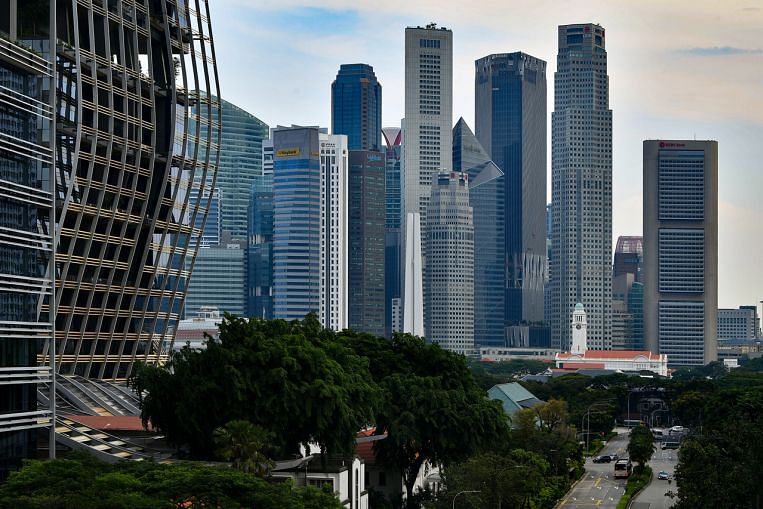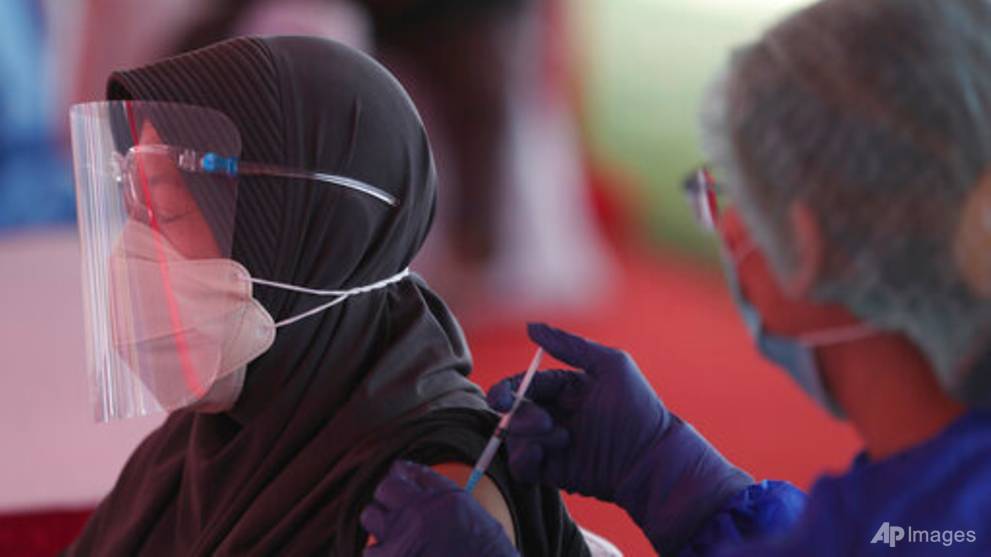JIUQUAN: The first astronauts arrived at China's new space station on Thursday (Jun 17) in the country's longest crewed mission to date, a landmark step in establishing Beijing as a major space power.
The trio blasted off on a Long March-2F rocket from the Jiuquan launch centre in northwest China's Gobi desert, and their craft docked at the Tiangong station around seven hours later, where they will spend the next three months.
State broadcaster CCTV showed a live feed from inside the spacecraft during the journey, with the three astronauts lifting their helmet visors after it reached orbit as one smiled and waved at the camera.
Another floated a pen just off his lap in zero-gravity as he browsed the flight manual.
Around seven hours after lift-off, space officials confirmed that the craft had docked with Tianhe, the core module of the country's new space station.
The Shenzhou-12 craft has "successfully docked with the forward port of the core module" of the Tiangong station, said the China Manned Space Agency, as state TV showed live footage.
At a ceremony before blast-off, the three astronauts, already wearing their space suits, greeted a crowd of supporters and space workers, who sang the patriotic song Without The Chinese Communist Party, There Would Be No New China.
By Thursday evening, the astronauts were shown on television entering the core module, one of them making a 360-degree flip in the process.
The group will be setting up their living quarters and are expected to open the door to the Tianzhou-2 cargo craft - which docked earlier with the core module - on Friday morning.
The mission's commander is Nie Haisheng, a decorated air force pilot in the People's Liberation Army who has already participated in two space missions.
The two other members are also from the military.
SPACE LIFE
The Tianhe module of the space station has separate living spaces for each of the astronauts, a "space treadmill" and bike for exercise, and a communication centre for emails and video calls with ground control.
Huang Weifen of the China Manned Space Program said the astronauts will perform two spacewalks during the mission, both lasting around six or seven hours.
She also said the trio will wear newly-developed spacewalk suits.
READ: China to send three astronauts to space, including its oldest
The launch - of China's first crewed mission in nearly five years - is a matter of huge prestige in China, as Beijing prepares to mark the 100th anniversary of the ruling Communist Party on Jul 1 with a massive propaganda campaign.
To prepare for the mission, the crew underwent more than 6,000 hours of training, including hundreds of underwater somersaults in full space gear.
The Chinese space agency is planning a total of 11 launches through to the end of next year, including three more manned missions that will deliver two lab modules to expand the 70-tonne station, along with supplies and crew members.
China's space ambitions have been fuelled in part by a US ban on its astronauts on the International Space Station, a collaboration between the United States, Russia, Canada, Europe and Japan.
READ: Rover leaves 'China's imprint' on Mars
It is due for retirement after 2024, even though NASA has said it could potentially remain functional beyond 2028.
Tiangong will be much smaller than the ISS, and is expected to have a lifespan of at least 10 years.
China has said it would be open to international collaboration on its space station although it has yet to give specific details.
Zhou Jianping, chief designer for the space programme, said "foreign astronauts are certainly going to enter the Chinese space station one day".
"There are a number of countries that have expressed a desire to do that and we will be open to that in future," he said.
Beijing said in March it was also planning to build a separate lunar space station with Russia, and this week the two countries issued a "roadmap" for potential collaboration opportunities.
https://news.google.com/__i/rss/rd/articles/CBMiVmh0dHBzOi8vd3d3LmNoYW5uZWxuZXdzYXNpYS5jb20vbmV3cy9hc2lhL2NoaW5hLXJvY2tldC1zcGFjZS1zdGF0aW9uLXRpYW5nb25nLTE1MDMxNjE00gEA?oc=5
2021-06-17 11:26:15Z
52781667066632




